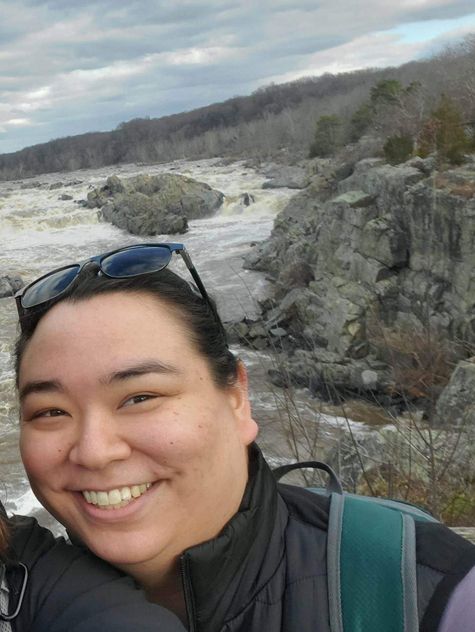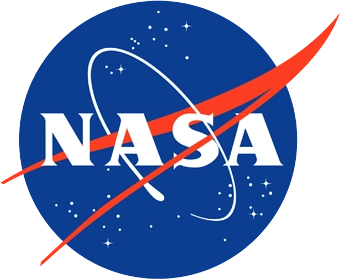Early Career Scientist Spotlight
Dr. Tracy Esman (she/her/hers)
Planetary Scientist
Ionosphere, Thermosphere, Mesosphere Physics Laboratory (675)
Did you always know that you wanted to be a Planetary Scientist?
Definitely not. For a time, I was interested in becoming a marine biologist because the darkness and mystery of the deep sea was scary to me, I thought learning more about it would reduce its scariness. I have also always been a big fan of sharks. The starless (due to light pollution) night sky had a similar aura of uncertainty and spookiness.
My high school offered both marine biology and astronomy. I don't remember the exact reason, but whether it was a scheduling conflict or the smell of the fish tanks, I enrolled in astronomy first, and it stuck. My senior project then involved driving to the University of Maryland to work on exoplanet research with a professor there. At this point, however, I still was not thinking about planetary science as a career option.
When I took a planetary science class in my third year in undergrad, I realized that was the right subset of astronomy for me. I was excited to learn about planetary bodies from their surfaces to their atmospheres. In particular, learning about Hyperion is a memory that stands out. Hyperion is a moon that orbits Saturn and has such a low gravity that ejecta from impacts does not fall back to the surface, leaving the moon looking like a pumice stone.
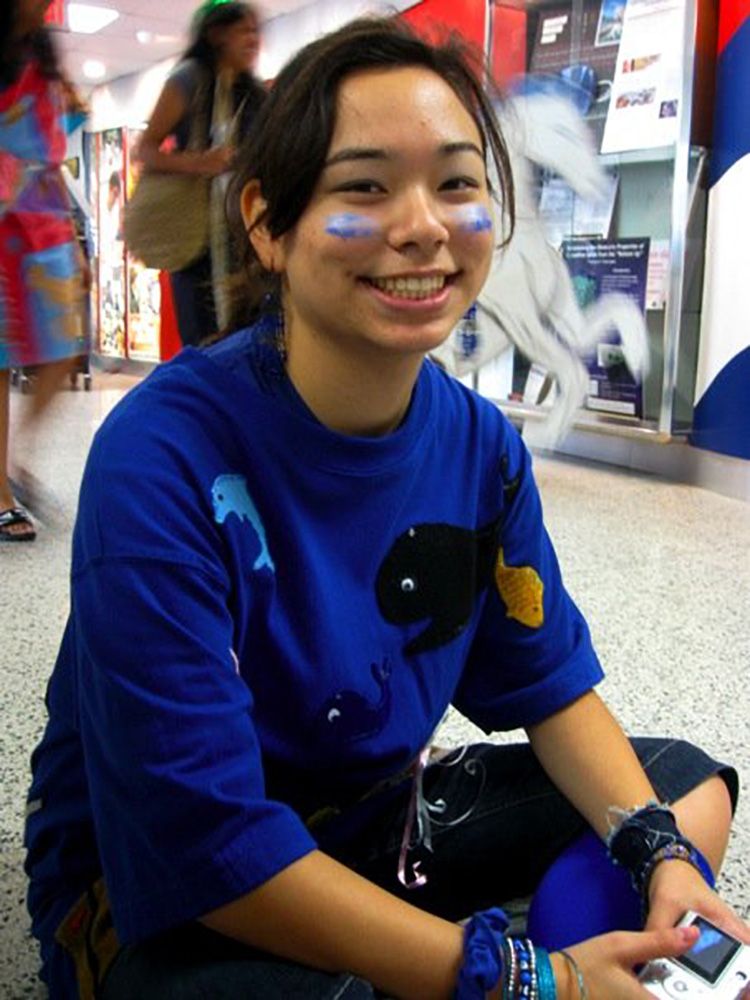
Credit: Chantal Montrose
What does a typical day at work look like for you?
A typical day at work is sitting at a computer, doing a mix of coding, meetings, reading, and writing. My primary analysis is done via programming. My research focuses on plasma and waves in the ionosphere and magnetosphere of Earth and Mars. One way to identify waves is to look at magnetic field data. The results of wave-particle interactions can be investigated by examining the flux of protons, ions, and electrons. At Mars, single point data acquisition makes determining the drivers of waves a bit difficult. At Earth, data from multiple spacecraft can be analyzed, but conclusions are still difficult as it is hard to prove that observations from one spacecraft are associated with observations from another.
Every day I must decide which project to focus on and for how long. Sometimes I spend time working to make datasets more accessible to the public, while other times I am loading the data to run statistics in order to answer science questions. I produce code that allows for easier downloading and manipulation of data. With proper metadata, unfamiliar datasets are faster understood by those trying to use them. I am working towards the addition of compatibility of Martian datasets (Mars Global Surveyor and MAVEN) to existing Earth-centric software, which will facilitate Earth-Mars comparisons.
Another important aspect of my day is the interactions with other scientists in meetings or in the hallway. These can generate new ideas, unexpected questions, and collaborations. The diversity of scientific interests at GSFC is vital for the creative projects we work on.
How did you end up working at NASA Goddard?
I conveniently grew up very close to Goddard and my research project with a professor at UMD kept Goddard in my mind as a potential opportunity. I was a NASA intern at Goddard for 2 summers while an undergrad (working with Conor Nixon and Jared Espley). I had very positive experiences both times. I enjoyed the atmosphere the most. I felt valued and respected despite only being an intern, and that experience convinced me, even back then, that I wanted to return as a postdoc.
While there, I was part of the production of a Science on a Sphere video about Titan. Each participating intern was a tour guide that discussed different aspects of Titan. I was Kivu, the welcoming committee standing by the Huygens Museum. Though not related to my research, it was fun and interesting to be a part of an outreach project at NASA.
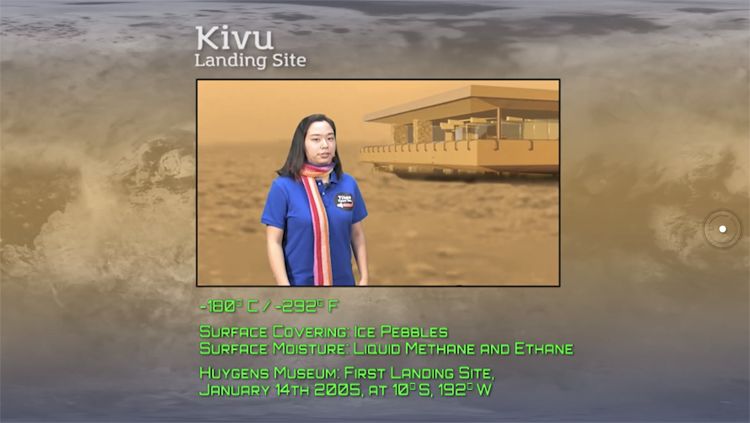
Credit: NASA Goddard
What is one of your favorite moments in your career so far?
One of my favorite moments so far was during my second internship at Goddard. I was looking at MAVEN cruise data and found large boxy variations in the magnetic field. This had previously not been identified, so it was exciting to be a part of the identification of this recurring artificial signal. It turned out to be associated with the spacecraft’s thruster firing, so it is important to exclude these signals from analysis to prevent contamination of the scientific data. This was also the beginning of my association with the MAVEN team, which has been an important part of my career and a great source of enjoyment. Our periodic team meetings are especially rewarding as it’s a gathering of a bunch of scientists all looking for answers about Mars.

Credit: Kathleen Cirbo
What do you enjoy the most about your job?
The aspect I enjoy most about my job is the people. Throughout my experiences as an intern, graduate student, and postdoc, I have been surrounded by incredibly smart, funny, and kind individuals. I love the brainstorming process with teammates. It's fascinating to get a look at how other scientists think and how their different passions and perspectives can lead to very different questions and ideas.
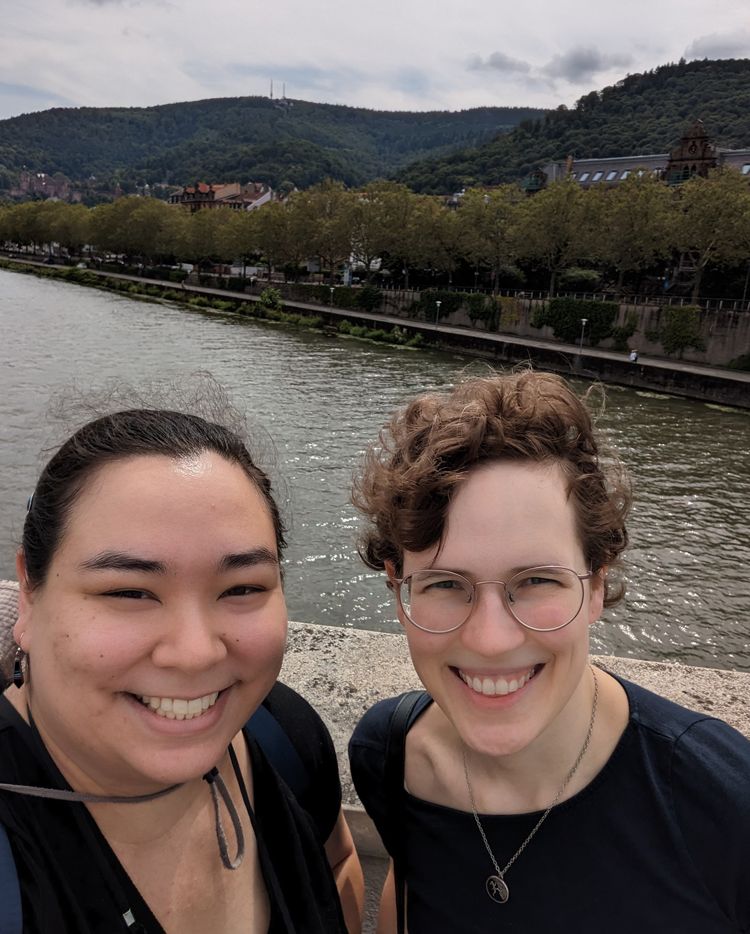
Credit: Tracy Esman
6What is an interesting problem or hurdle that you've overcome in your work?
While I truly enjoy the collaborative nature of my job, sometimes collaborations just don't work. I had one such situation in grad school, where my advisor simply was not a good fit. I ended up switching advisors right around when I should have been taking my oral exams, which was especially stressful. I was supported by my friends and members of the MAVEN team during this big change. I ultimately was able to find a new PhD advisor that was a far better fit and completed my degree with a different scientific focus.
For those struggling with their advisor, I would suggest being as proactive as possible. Talk to others about the issues, figure out exactly what isn’t working, and try to identify potential new advisors. Switching advisors is not easy. It can involve a wide range of issues including financials, career-related, and social consequences. Sometimes struggling through seems like the only path forward. For me, the change was one of the best things to happen in graduate school. And in my experience, it is quite a common occurrence.
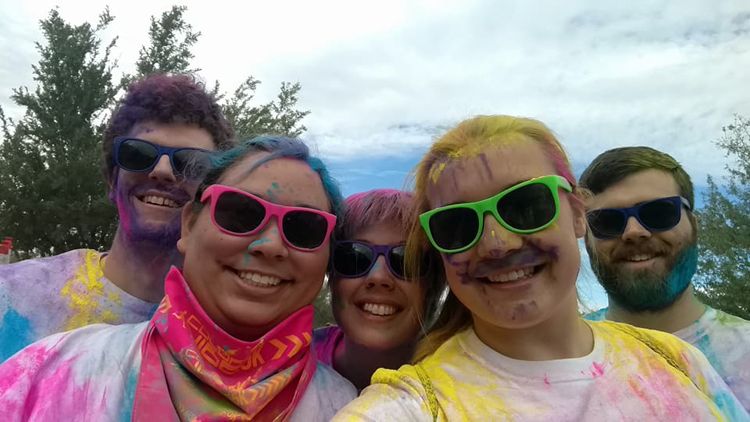
Credit: Amanda Stadermann
What do you like to do in your free time?
I am a PC gamer. I make and maintain extremely valuable friendships with people all over the world through online gaming. I play a range of games - some are quite relaxing, while others are strategy-heavy or just plain difficult. I also enjoy games that are story-rich, educational, or silly. It's always surprising how often my experiences in games help me in life.
I have a monthly game night with family and occasionally play board games with friends. I like hosting little get-togethers and cooking for my friends (though I hate doing dishes). These days I’ve been cooking a lot of Mexican-inspired foods, but I look forward to baking in the winter.
Another big free time consumer is my cat, Gia. She's from Tucson and is terrified of thunderstorms. At the same time as being a nibbler, she is a very social cat and enjoys the smells of visitors’ shoes. Her name comes from Ligeia, which is both an Edgar Allan Poe short story and a (mostly) methane lake on Titan.
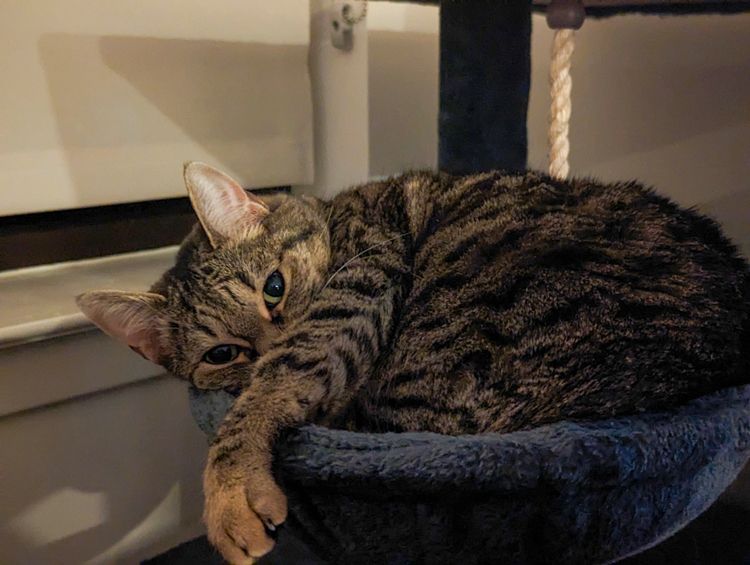
Credit: Tracy Esman
Biography
Home Town:
Burke, VA
Undergraduate Degree:
B.A. in Astronomy-Physics from the University of Virginia in Charlottesville, VA
Post-graduate Degrees:
M.S. and Ph.D. in Planetary Science from the University of Arizona in Tucson, AZ
